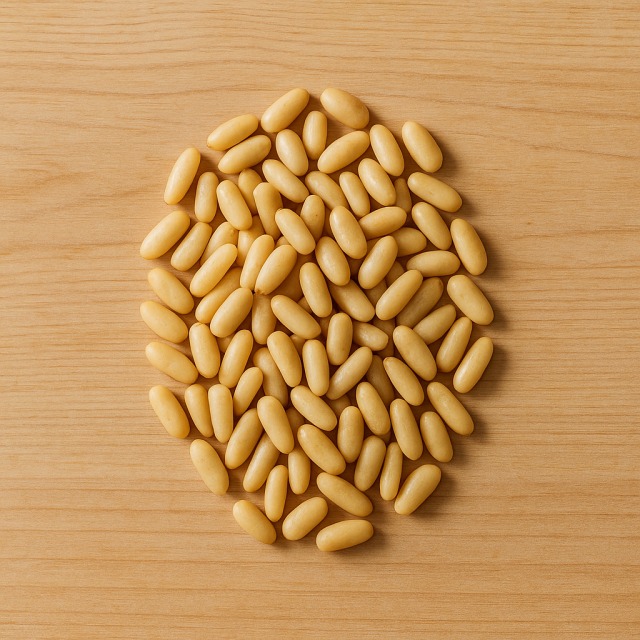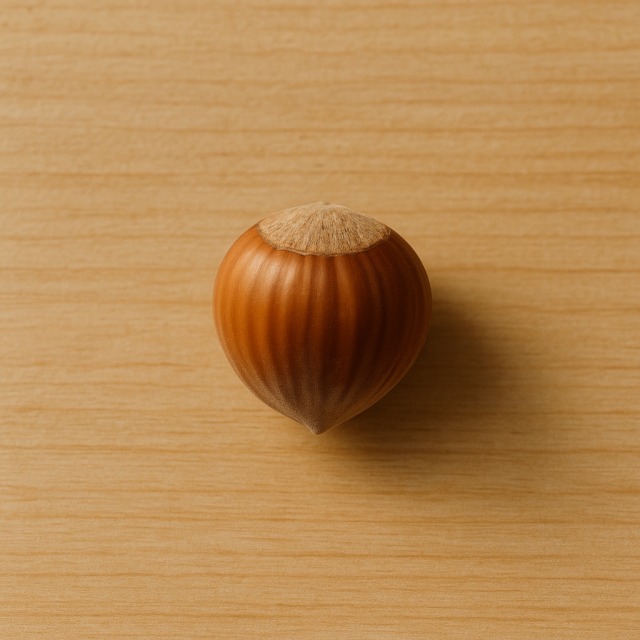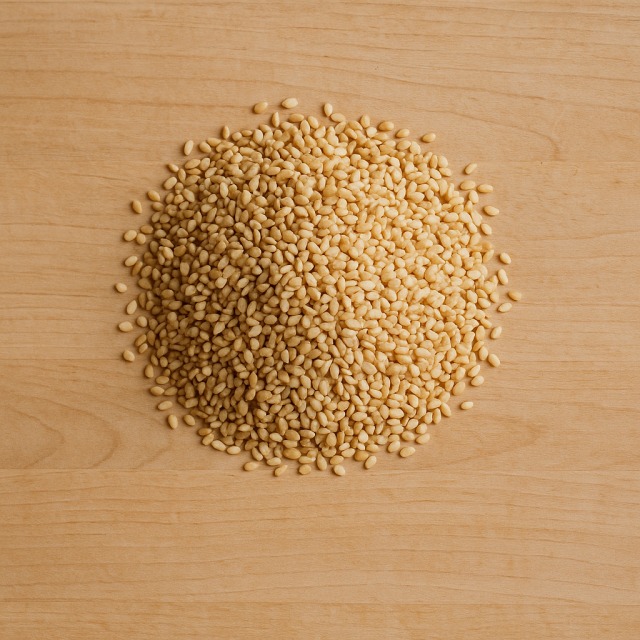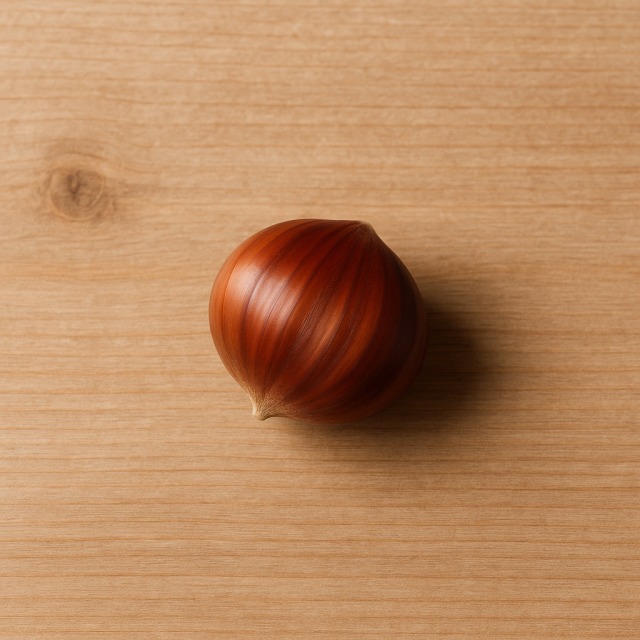Calorie Chart / Fruits / Pine nut
How Many Calories Are in Pine nut?
Calculation of the nutritional value & Recommended Dietary Intake of pine nut
For g and a calorie requirement of kcal
| Calories 202 kcal | Proteins 4.1 g | Lipids 21 g | Carbohydrates 3.9 g |
| 10% | 5% | 31% | 1% |
Health benefits of pine nut

Pine nut - 100g
Calories 673 kcal
Proteins 13.7 g
Lipids 68.4 g
Carbohydrates 13.1 g
Pine nut is a high-calorie food: its 673 kcal per 100 g place it in the upper range for energy-dense ingredients. These calories, however, are largely supplied by heart-friendly unsaturated lipids, including linoleic and the rarer pinolenic acid. Pinolenic acid is thought to stimulate the release of satiety hormones, which could help limit excessive calorie intake later in the day.
Beyond calories, pine nut provides notable amounts of vitamin E (antioxidant protection for cell membranes), vitamin K (blood coagulation), several B-group vitamins, and minerals such as magnesium, phosphorus, zinc, and manganese. Thanks to this micronutrient richness, the calories offered by pine nut come packaged with nutrients that support muscle contraction, bone health, and immune function—an advantage over many empty-calorie snacks.
The tree itself, mainly Pinus pinea in the Mediterranean, has been harvested since Roman times; soldiers reportedly carried pine nuts for portable calories on long marches. Their delicate, almost buttery flavor has made them a luxury ingredient ever since.
To sum up: plenty of calories, yes, but these calories are coupled with quality fats, plant proteins (13.7 g/100 g), and valuable micronutrients that earn pine nut a place in a balanced diet when portions are kept reasonable.
Tips for incorporating pine nut into a balanced diet
Because pine nut delivers concentrated calories, a tablespoon (about 10 g) is often enough to add crunch, flavor, and nutritious calories to a dish. Lightly toast the kernels in a dry pan to intensify the aroma without adding extra calories.
Classic uses include blending them with basil and olive oil for a homemade pesto sauce; the result spreads flavorsome calories evenly throughout pasta or grilled vegetables. For a balanced lunch bowl, mix cooked quinoa, roasted pumpkin cubes, baby spinach, and a spoonful of pine nuts: you get plant proteins, fiber, and slow-release calories without excess saturated fat.
Pine nuts also pair nicely with lean proteins: sprinkle them over a grilled chicken breast or a fillet of salmon just before serving. The dish stays moderate in total calories compared with breaded or fried alternatives, yet offers texture and a satisfying mouthfeel.
For a quick dessert that keeps calories under control, fold toasted pine nuts into a bowl of plain yogurt with a drizzle of honey. You'll gain creamy sweetness, crunchy contrast, and fewer calories than many packaged snacks.
Frequently Asked Questions
- How many calories are in pine nut?
- There are 673 kcal per 100 g.
- Are the calories in pine nut considered "good" calories?
- Most calories come from unsaturated fats that help maintain healthy cholesterol levels; they are therefore viewed as nutrient-dense calories rather than empty calories.
- How many calories does a tablespoon of pine nuts add to a salad?
- Roughly 60 – 70 kcal, a fraction of the calories in 100 g but enough to boost flavor and nutrition.
- Can I replace pine nut to reduce calories in pesto?
- Yes—try almond or walnut; they bring fewer or similar calories but cost less and offer different micronutrients.
- Do roasted pine nuts contain more calories than raw ones?
- No: dry toasting only removes a trace of moisture, so the calories stay virtually identical.
- Is pine nut suitable for athletes who track calories and proteins?
- With 13.7 g of proteins and energy-dense calories, pine nut is useful for compact snacks before long training sessions.
- How do pine nut calories compare with other nuts?
- Pine nut calories are close to cashew nut and pistachio, slightly below hazelnut, and well above low-calorie foods like apple.
Similar foods
Information provided by Calorie Menu may contain inaccuracies or errors. It cannot, under any circumstances, substitute medical advice or medication.










